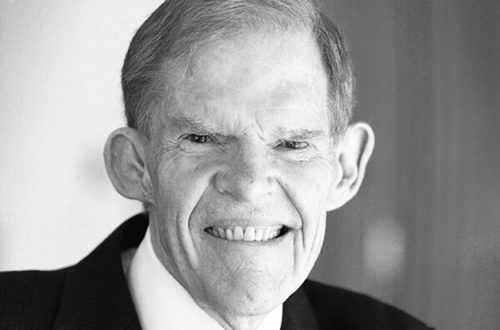Joseph, used by God to preserve a remnant
Title: Joseph, used by God to preserve a remnant
Aim: To recognize that God’s purposes exceed our plans.
Scripture: Genesis 45:1–15
Joseph’s disclosure, Genesis 45:1–7
Genesis 41:53-57 leaves the impression that life was busy and absorbing for Joseph, both personally and professionally. It became even more so as the seven years of drought and hunger began, for Pharaoh directed his starving population to go to Joseph for the food they needed to survive.
The famine extended even to Canaan and affected its inhabitants. Moreover, chapters 42–44 reveal that as the situation worsened throughout the Fertile Crescent, Jacob was forced to send his remaining sons (except for Joseph’s full brother, Benjamin) to Egypt to buy grain for the family.
Such a transaction required the siblings to deal directly with Joseph. After recognizing his brothers and remembering the dream from his adolescence, the powerful overseer of the land began an elaborate test to see what kind of adults his brothers had become over the years.
Joseph started the test by accusing his siblings of being spies and imprisoning them for three days. Joseph then held Simeon as hostage and allowed the other brothers to return to Jacob with food for the family.
Joseph also ordered that the money the siblings had brought to buy food be hidden in their sacks of grain. He informed them that to buy more grain and save Simeon, they would have to return and appear in his presence with Benjamin (42:1-20).
Jacob thought he had already lost one of his sons born to Rachel—Joseph. Now the patriarch thought he was in danger of losing his other son born to Rachel—Benjamin—who was probably then in his twenties or early thirties.
However, to save the family from starvation, a reluctant Jacob allowed Benjamin to return with his other sons to Egypt. The brothers immediately attempted to return the money that had mysteriously appeared in their grain sacks on the last trip.
The siblings also purchased more grain for the family. Then, with Simeon returned to them, they all began their journey back to Canaan (42:21–44:3).
The brothers had not traveled far before they discovered another phase of Joseph’s test. He again hid their money in the grain sacks and placed his silver cup in Benjamin’s grain sack.
Joseph’s servant accused Benjamin of the crime and offered to let the other brothers go free while he took Benjamin to become Joseph’s slave. Instead of saving themselves, the brothers risked their lives by returning to Egypt to plead for Benjamin’s freedom.
Judah functioned as the spokesperson for the group (44:4-32). After offering a summary and explanation of recent events, Judah concluded by pleading with Joseph to keep Judah in Egypt as a slave in place of Benjamin.
The younger sibling, in turn, would be permitted to return with his other brothers to their home in Canaan (v. 33). Judah explained that the alternative would involve him returning to his aged father without Benjamin, and Judah could not bear to witness the devastation Jacob would feel (v. 34).
Judah’s speech proved that he was not the same calloused and self-centered person who years earlier had devised the scheme of selling Joseph to Midianite traders. It had taken a long time, but the Lord had brought about dramatic changes in Judah’s heart.
As Judah was telling about Jacob’s sorrow and offering himself as a substitute for Benjamin, Joseph must have listened with rising emotion. He wanted to find out whether the once egotistical, vengeful brothers had changed. Through an elaborate test, Joseph verified that his siblings had not only matured, but also become God-fearing adults.
Finally, the overseer could hide his feelings no more. Not for a minute longer could he stand in front of his brothers and pretend to have a merely detached, bureaucratic interest in them.
Joseph’s brothers must have been stunned when they heard him command his attendants to leave the room (45:1). Most likely, Joseph had been talking to his siblings through an interpreter to disguise the fact that he could understand their Hebrew dialect.
The tender reunion that was about to occur would be a family matter, and presumably Joseph didn’t want any outsiders around to distract him and his brothers. Joseph’s emotional release was so intense that his weeping could even be heard by the servants who had departed from the immediate area. Somehow the household of Pharaoh also learned about the incident, perhaps through an official report (v. 2).
The sons of Jacob were shocked to hear the second-most powerful person in Egypt declare, “I am Joseph!” (v. 3). For more than 20 years, his siblings thought of Joseph as enslaved or dead. Since meeting the nation’s viceroy, they never suspected that the person dressed in Egyptian finery and speaking the indigenous language was their long-lost brother. Yet, there he stood, saying in Hebrew that he was their sibling (Acts 7:13).
Joseph followed up his self-revelation by asking about the father he had not seen since he was seventeen. Beyond any other question he might ask, this was the concern closest to the heart of the overseer.
So, Joseph was eager to receive more news about his father. Until this point, Joseph would have aroused suspicion by showing too much interest in Jacob.
Joseph’s brothers made no reply to his query, for they were still in shock over finding themselves in the presence of their sibling. Evidently, they had not mentioned the name of the brother who—as the cover-up story went—had been mauled and killed by a wild animal (Gen 42:13; 44:28).
So, perhaps Joseph’s using his own name convinced them of his real identity. Now they were confused and terrified and undoubtedly wondered whether he would execute them for their long-ago, treacherous act.
The biblical text portrays Joseph as an emotional, sensitive person. The moment when he revealed his identity to his brothers is not the first time in the narrative that he cried.
For instance, Joseph did so briefly but secretly when he had Simeon taken from his brothers and held prisoner (42:24). Then Joseph showed even more emotion when he first saw his brother, Benjamin.
So that Joseph’s brothers would not see him cry, he left them and wept by himself for a while in his private room (43:30). Later, he would weep “for a long time” (46:29) when he saw and embraced his father, Jacob, after the passage of more than 20 years.
Thinking that perhaps the brothers did not believe Joseph was who he claimed to be, the vice-regent called them to him so that they could take a closer look at his face (45:4). Then he repeated his assertion to be Joseph, the sibling whom they long ago had sold into slavery.
Only Joseph could have known the secret that his brothers had mistreated him so shamefully. Of course, Joseph’s brothers were dumbfounded by his disclosure.
The person the siblings had terribly wronged was now in a position of near absolute power over them. With just a word, he could imprison, enslave, or execute his siblings.
The overseer’s emotional outburst only added to their fear of his vengeance. However, like his brothers, he was a different person than the 17-year-old who was thrown into a cistern.
During their time of reunion, Joseph reassured his petrified brothers that he was not interested in revenge. He was able and willing to forgive his siblings because he had learned to look at his trials from a godly perspective.
What follows signifies the theological highpoint of the narrative about Joseph (chaps. 37–50). Instead of concentrating on his brothers’ evil intentions, Egypt’s grand vizier focused on God’s supreme plan of blessing him with success and saving people from destruction. So, Joseph urged his siblings not to be angry with themselves for their past misdeeds.
Joseph reasoned that God had been working in the circumstances which brought Joseph to Egypt. Though the brothers’ actions in the past were despicable, God had used their decisions to place Joseph in a position of authority so that he could rescue Egypt and even his own family (45:5; see 50:20).
The truth of God’s control over all that occurred lay at the heart of the reconciliation between Joseph and his brothers. None of them could reverse the wickedness the siblings were guilty of committing against Joseph.
Yet, the realization that the Creator can bring good out of evil paved the way for the severed relationship to be fully restored and rehabilitated. What was humanly impossible to achieve, the Lord sovereignly brought about in His own time and way.
Joseph explained that the two years of famine that had already past would extend to seven. This means that he was now 39 years old.
During this time, the drought would be so severe that neither plowing nor harvesting would occur (45:6). This would be just as true for the family of Jacob as for the entire nation of Egypt. Without immediate assistance and long-term help, the Israelite clan was unlikely to survive.
Over the years, Joseph had plenty of time to reflect on the unexpected turn of events his life had taken. As a person of faith, he could discern God’s purposes in what had happened to him.
God would use Joseph to preserve a “remnant” (v. 7) of His chosen people, through whom He would eventually bring the blessings of the Abrahamic covenant to future generations (Ezra 9:8; Isa 20:10; 28:5; Jer 23:3). Joseph’s words reminded his brothers of the great peril facing their family and implied that they would be rescued only because God had something special in store for the Israelite clan.
Joseph’s instructions, Genesis 45:8–15
The main point of Joseph’s explanation is that ultimately God—not Jacob’s sons—was responsible for sending the former Hebrew slave and prisoner to Egypt. Joseph said that the Lord had made him a “father” (Gen 45:8) to Pharaoh.
Joseph was speaking figuratively of someone giving others trustworthy advice, just as loving parents would to their children. In the case of Pharaoh, he relied on Joseph’s foresight and prudence.
In the years since the Egyptian ruler had appointed Joseph as second-in-command, the Hebrew had proven his honesty and dependability. Both the royal household and the entire land of Egypt were well cared for.
Since the first time Joseph’s brothers had appeared before him, the overseer had worked out a plan for the family. He would settle them in Egypt.
Joseph knew that the Israelite clan had to act quickly to survive the famine, which had several more years to go. So, he directed his brothers to exhort their father not to delay in relocating the entire family.
As reassurance that this was the divinely ordained course of action, Joseph noted that God had made him “lord of all Egypt” (v. 9). We can only imagine the impression left on Joseph’s brothers as they possibly heard attendants command everyone within earshot to kneel in the presence of the nation’s overseer (41:43).
Joseph’s plan was to settle the entire Israelite clan—family members, their livestock, and all their possessions—in the land of Goshen (45:10). This region (elsewhere referred to as the “district of Rameses”; Gen 47:11; Exod 1:11; 12:37) was in the northeastern section of the Nile River delta.
Though the area was modest in size (about 900 square miles), it was considered some of the best territory in Egypt. With irrigation, it was an excellent site for grazing livestock and growing certain crops.
Joseph, as the second-in-command in Egypt, promised to provide the Israelite clan what they needed and would watch over them, especially in the five years of famine that remained. Left on their own in Canaan, Jacob’s family would either die from starvation or scatter from the plight of their extreme destitution. Joseph wanted to ensure that the entire group remain together and safe in Egypt (Gen 45:11).
When Jacob’s family moved to Egypt, they had to cross barriers greater than the rocky Sinai Peninsula to make this new land their home. Not only were Egypt and Canaan on different continents, but also they contrasted sharply in terms of agricultural practices and societal traditions.
For instance, Egypt was rich in crops, livestock, and precious metals, but Canaan’s primary enterprise was shepherding, which the Egyptians despised (46:34). At that time, Egypt was an intellectual and cultural center of the ancient world, while Canaan was mostly an intellectual and cultural backwater.
Most Egyptians were brown-skinned, with stiff brown hair. Most Canaanites had olive-colored complexions and straight dark brown or black hair. Without Joseph’s presence and influence in the royal court, it is unimaginable that the Israelite clan of nomadic shepherds would have received such a gracious welcome from Pharaoh in the sophisticated, cosmopolitan nation over which he ruled (47:1-12).
Joseph wanted there to be no doubt among his siblings that he truly was their long-lost brother. Here we find Joseph dispensing with an interpreter and speaking directly to his brothers (45:12; see 42:23).
The viceroy urged his siblings to tell their father how much Joseph was honored in Egypt and the collaborating details of what they saw. Joseph reasoned that their personal testimony would convince Jacob to relocate his entire family from Canaan to Egypt (45:13).
With the important explanations over, Joseph embraced and wept with his brothers, beginning with the youngest (Gen. 45:14). Benjamin was Joseph’s only full brother and the only one innocent to the overseer.
Earlier, when Joseph was pretending to be an Egyptian, he must have wanted more than anything to embrace Benjamin and his other siblings. Now the high-ranking official did not have to restrain himself anymore.
This mutual display of emotion and the conversation that followed completed the family reunion (v. 15). Whatever bitterness Joseph may have felt toward his brothers was all gone. They had nothing to fear from him, for he had forgiven them.
For thought and application
When leaders Mark and Jana set out with their youth group for Pennsylvania from Michigan, they knew the church’s bus was not in the best shape. Still, they had not expected to stop dead in bumper-to-bumper traffic on an Ohio interstate exit ramp—on a Sunday morning. There was little the group could do but push the stalled bus onto the shoulder, raise the hood, and pray for help.
Soon a woman on her way to church stopped to find out how she could help. “Well,” Mark said, “we need a mechanic.” “There’s a mechanic in our church,” the woman said. “Let’s see what I can do.”
Once at church, the woman interrupted the service to tell the congregation about the group’s plight and ask for assistance. She returned to the broken-down bus with a few other churchgoers.
“I can repair the bus,” one man said. Another pulled Mark aside and said, “I would like to put your group up for the night at our church while you wait for the repair. I would also like to buy your dinner.”
That breakdown taught the group important lessons about God’s faithfulness. It could have been a time of grumbling and frustration. Instead, they were all reminded that God’s purposes exceed our plans, especially as He works to accomplish His will in our lives. We must simply remember whose children we are—and enjoy the ride.



